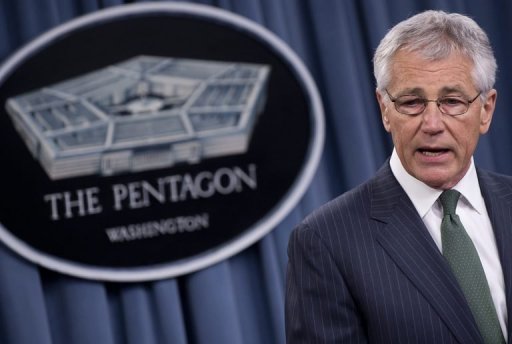TORONTO: Under pressure from its closest ally, Canada’s foreign ministry said Saturday that it will rewrite a training manual used by Canadian diplomats that lists the United States as a site of possible torture.
The document, released Friday, singled out the US detention center at Guantanamo Bay. It also names Israel, Afghanistan, China, Egypt, Iran, Saudi Arabia, Mexico and Syria as places where inmates could face torture.
Canada’s Foreign Affairs Minister Maxime Bernier said in a statement issued Saturday that he was embarrassed by the public disclosure of the manual that ”wrongly” includes some of Canada’s closest allies.
”I regret the embarrassment caused by the public disclosure of the manual used in the department’s torture awareness training,” said Bernier.
”It contains a list that wrongly includes some of our closest allies. I have directed that the manual be reviewed and rewritten. The manual is neither a policy document nor a statement of policy. As such, it does not convey the government’s views or positions,” the statement added.
Foreign Affairs spokeswoman Marina Wilson said Saturday that she could not say yet how long it would take to review the manual or what the process might involve.
The document prompted a sharp response from the US, a key NATO ally and trading partner, which asked to be removed from the manual.
”We find it to be offensive for us to be on the same list with countries like Iran and China. Quite frankly it’s absurd,” US Ambassador David Wilkins told The Associated Press on Friday. ”For us to be on a list like that is just ridiculous.”
He said the US does not authorize or condone torture. ”We think it should be removed and we’ve made that request. We have voiced our opinion very forcefully,” Wilkins said.
An Israeli Embassy spokesman also said that the ambassador of Israel would expect his country to be removed from the list.
A Canadian citizen, 21-year-old Omar Khadr, is in custody at Guantanamo on charges that include killing a US medic with a grenade during a July 2002 firefight in Afghanistan. He has claimed in the past that he has been abused, but Canadian Foreign Affairs officials have said they accept US assurances Khadr has been treated humanely.
Human rights groups believe Canada has not done enough to ensure Khadr, who has been in custody since he was 15, is being fairly treated.
The workshop manual, which was used in the Foreign Affairs department s torture awareness training, was produced about two years ago while Canada s Justice Dennis O Connor was investigating the case of Maher Arar.
Arar, a Syrian-born Canadian engineer, was imprisoned and tortured in Syria for almost a year after he was detained and sent there by US authorities in 2002, wrongfully accused of having terrorist ties. A Canadian judicial inquiry, led by O Connor, later cleared him.
The government inadvertently released the manual to lawyers for Amnesty International who are working on a lawsuit involving alleged abuse of Afghan detainees by local Afghan authorities, after the detainees were handed over by Canadian troops. The document offers a section on laws prohibiting torture and what diplomats should do when cases are suspected.
It cites interrogation techniques such as stripping prisoners, blindfolding and sleep deprivation.
Alex Neve, secretary general of Amnesty International, said that he is unhappy with Canada s decision to rewrite the manual.
It was commendable to see that manual, which seemed to include an important section that was an objective assessment of human rights concerns around the world, said Neve. To see that now be undermined by concerns about embarrassing allies is very disappointing.
Canada s Liberal foreign affairs critic, Bob Rae, charged that the Canadian government is now in damage control.
There s a question of competence. I mean, to me, I don t think I ve ever seen a situation, or a government where the management of the foreign policy was handled in such an amateurish way on a number of fronts, said Rae.
The idea that you would equate the government of the United States with the government of Iran with respect to the treatment of prisoners is a little hard to fathom, said Rae.
But the fact that both Senator (John) McCain and Senator (Barack) Obama had to speak so strongly on the issue of torture during the questioning of the former attorney general of the United States shows that the question of the treatment of prisoners in the United States is a live question, said Rae.
